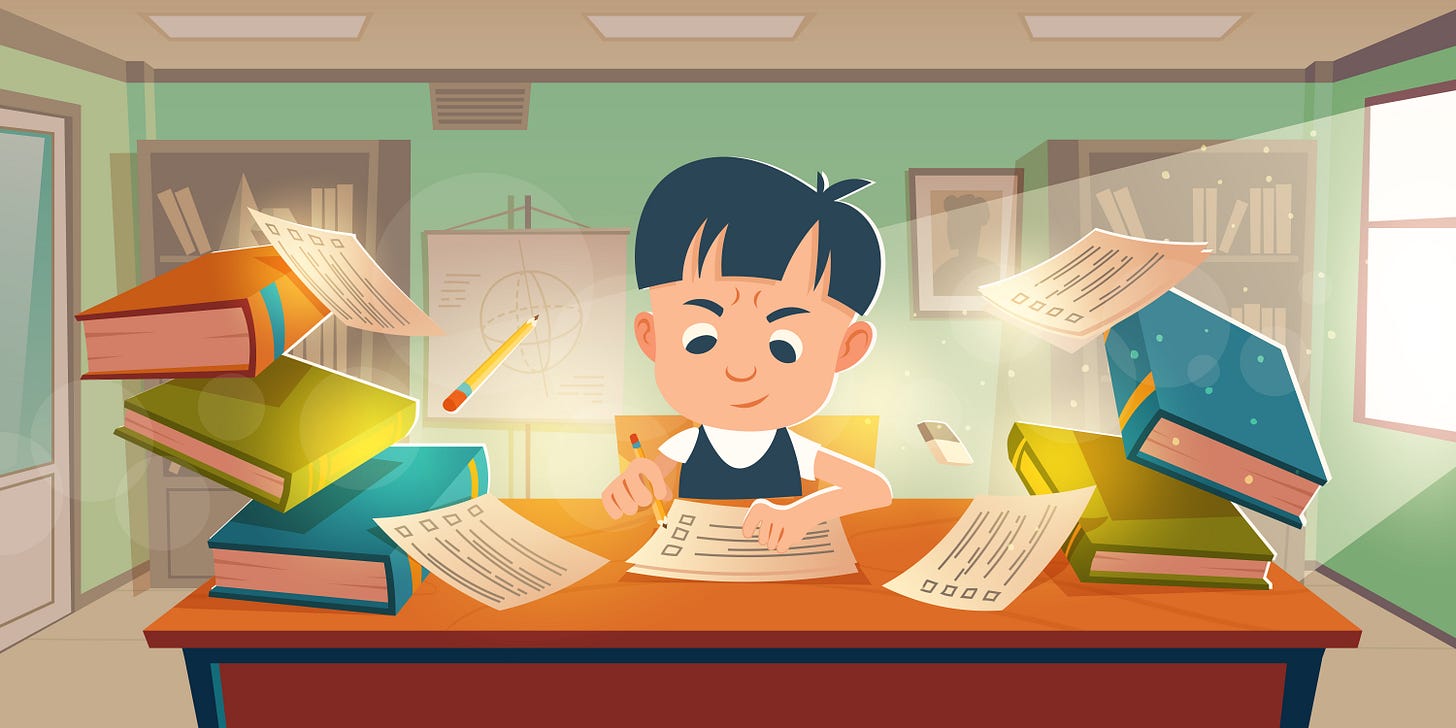How to be as ready as possible for exams
Whether you're in the Northern or Southern Hemisphere, exams really aren't that far away, so how can you help your teen get prepared?
Hi there,
If you’re in the Northern Hemisphere, your teen has just started the new school year; if you’re down in the Southern with me, your teen is coming up to the crucial last 100m of the school year.
Either way, exams are not terribly far away at all. Here in NZ Aotearoa NCEA exams start in less than two months’ time. Eek.
With that in mind, today I want to give your teen my tips for making the most of the rest of the school year so that they start their exam study as prepared as possible.
Keep track of ‘key topics’
The content of your teen’s exams need not be a total mystery to them.
Of course your teen cannot know the exact exam questions they are going to be asked, but, they should be able to make quite accurate predictions about what topics are very likely to come up.
There will be topics they have covered in class that will almost certainly be tested on in the exam. I like to think of these as a subject’s ‘key topics’. When your teen is studying for their exams, it’s these key topics they should spend the majority of their study time on.
To identify key topics, they are the topics your teen will have spent considerable time on in class, and the topics that come up pretty much every year in past exams and practice questions.
My tip: That your teen starts keeping a list of all of the key topics they think are likely to come up in the exam for each subject.
This simple task leads to major benefits:
It will mean your teen can start their serious exam study with a pre-made list of all of the topics they need to cover.
It will combat one of the study obstacles that so many teens struggle with when they embark on their exam study — where the heck do I start?!
Another major benefit: stress. More specifically, less stress. When you need to start studying for exams there is nothing more overwhelming than not knowing where to start or what topics you need to cover.
As you can see making a small time investment now by keeping track of key topics will pay off big time when the pressure is really on.
Get on top of the tricky topics
When it’s crunch time and exams are only a couple of weeks away, well, ideally, it’s not the time for your teen to be learning brand new things or trying to wrap their heads around topics they’re confused about.
That precious study leave time should be used for making study notes, writing practice essays, crafting an exam strategy, because those are the study techniques that are going to help your teen be ‘exam-ready’.
So to that end…
My tip: Your teen starts scheduling a few half-hour ‘extra’ study sessions a week to spend on the topics that are likely to come up in the exam that they are finding more difficult.
This way, when exams are only a few weeks away, your teen can find comfort in that they have already banked valuable hours covering some of their trickier topics, and aren’t starting their study leave at square 1.
Once again, relatively small time investments now will help to no-end in a couple of months’ time.
Hunt down exam study resources
Yes exams are stressful, and yes your teen likely has a lot of content to study, but thankfully they should be able to get their hands on exam study resources that make the process a lot easier.
My personal favourites were past exams and workbooks of practice questions and past exam questions.
In my view there is no better way to prepare for an exam than doing practice questions that will be very similar to the ones likely to come up in the real thing.
If your teen doesn’t already have some, I would help them find past exams and workbooks that are specific to their curriculum.
As with most things study-related, effective study techniques do not need to be complicated. You can see that my study tips above are actually really simple.
The other great selling point for your teen is that these techniques do not require an enormous time investment. Yes getting good grades takes hard work, but right now, during term/semester, there are easy little things your teen can do right now — including the techniques above — that should reap major benefits later on.
How’s your teen getting along this term? Are they feeling under control? Overwhelmed? Let’s figure things out together. See you in the comments.
Clare
P.S. If you haven’t already and your teen has no clue where to start when it comes to their exam study, I strongly suggest you head over to Cramlab.org and check out my Study System page and free resources for your teen. It’s my blueprint for your teen to start figuring out their own Study System.




